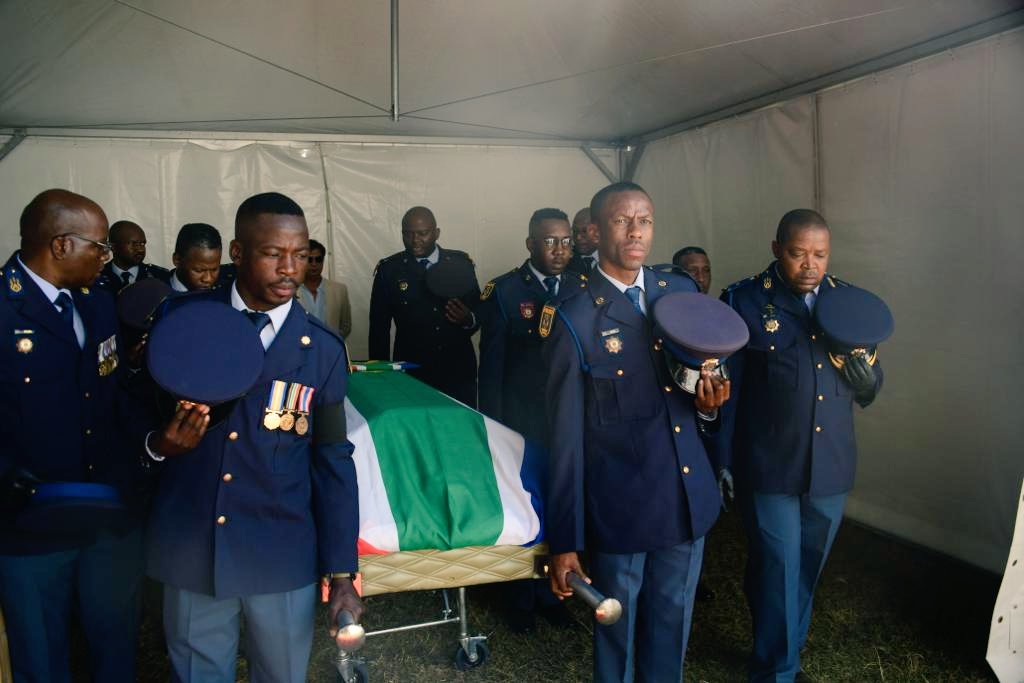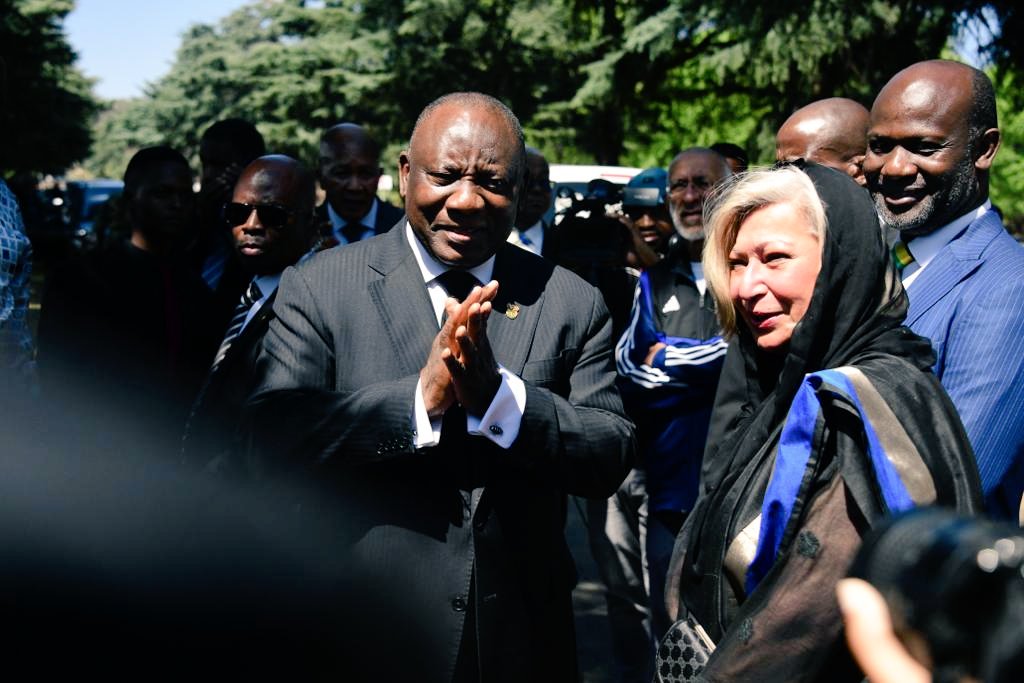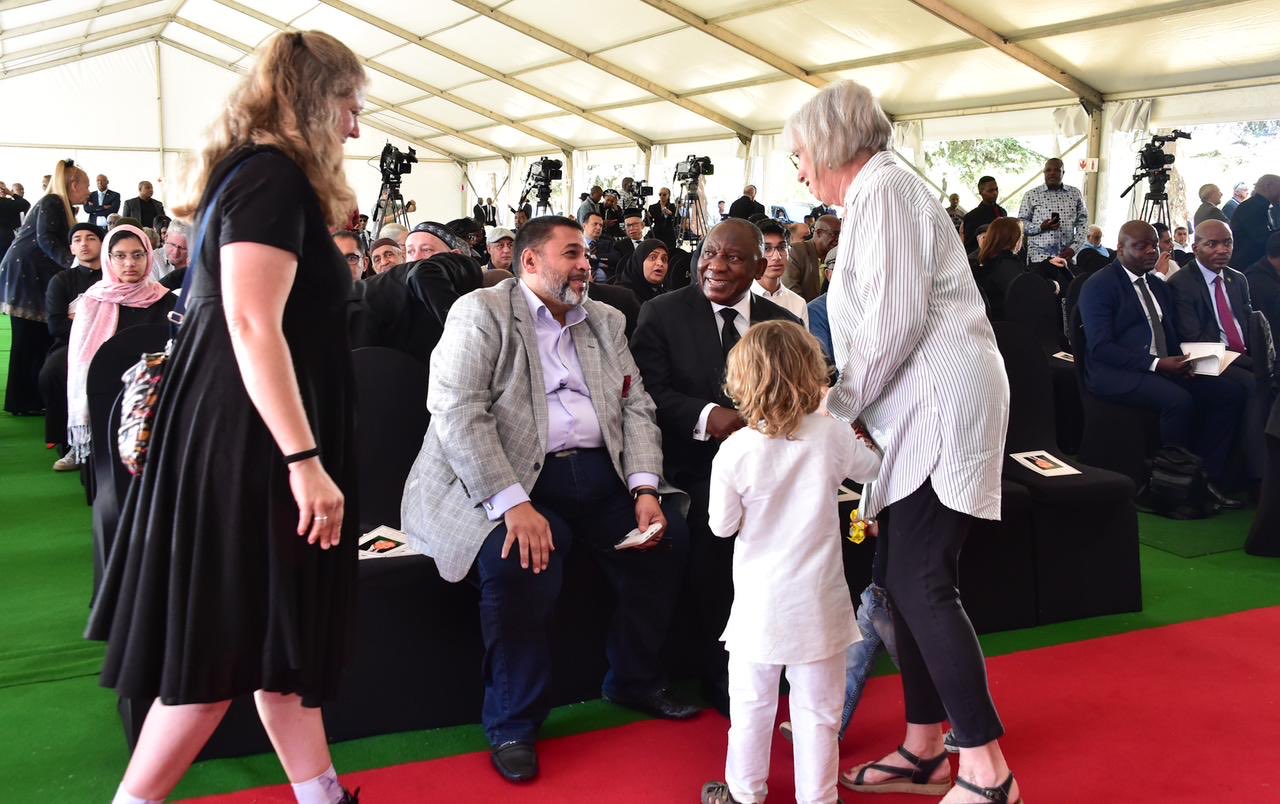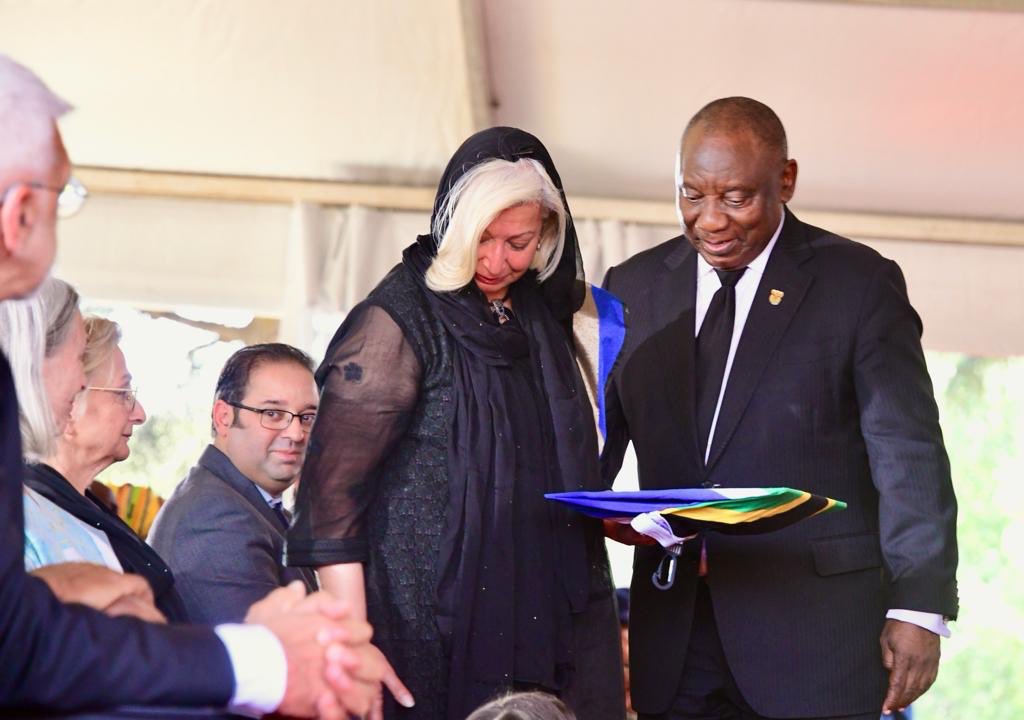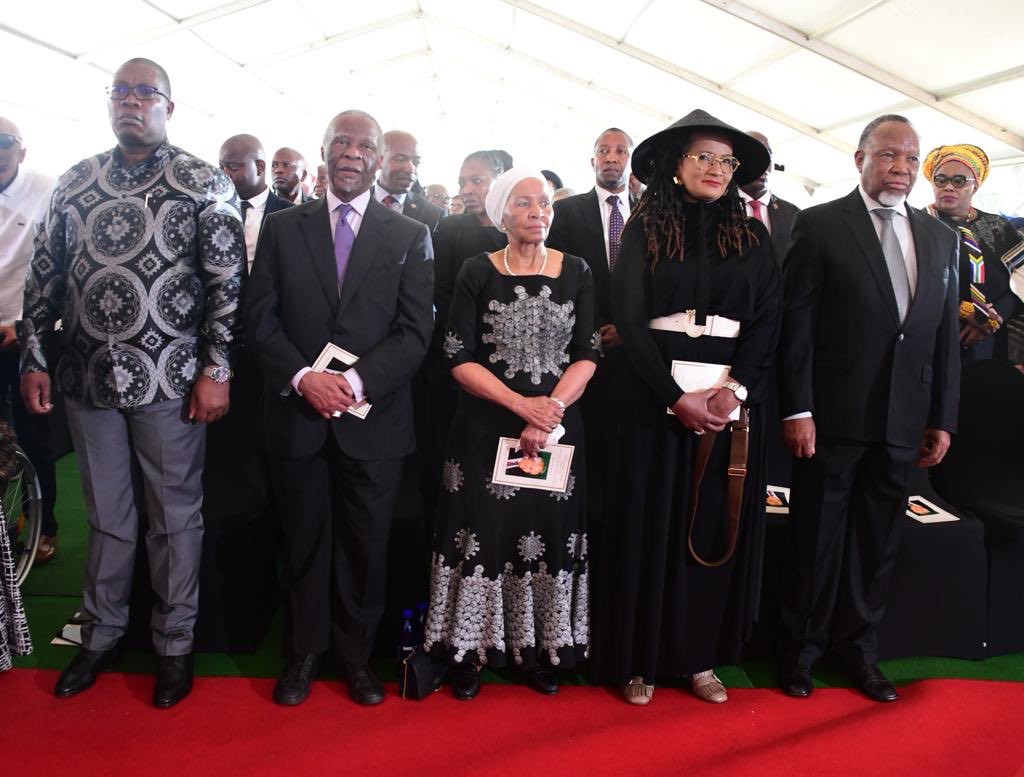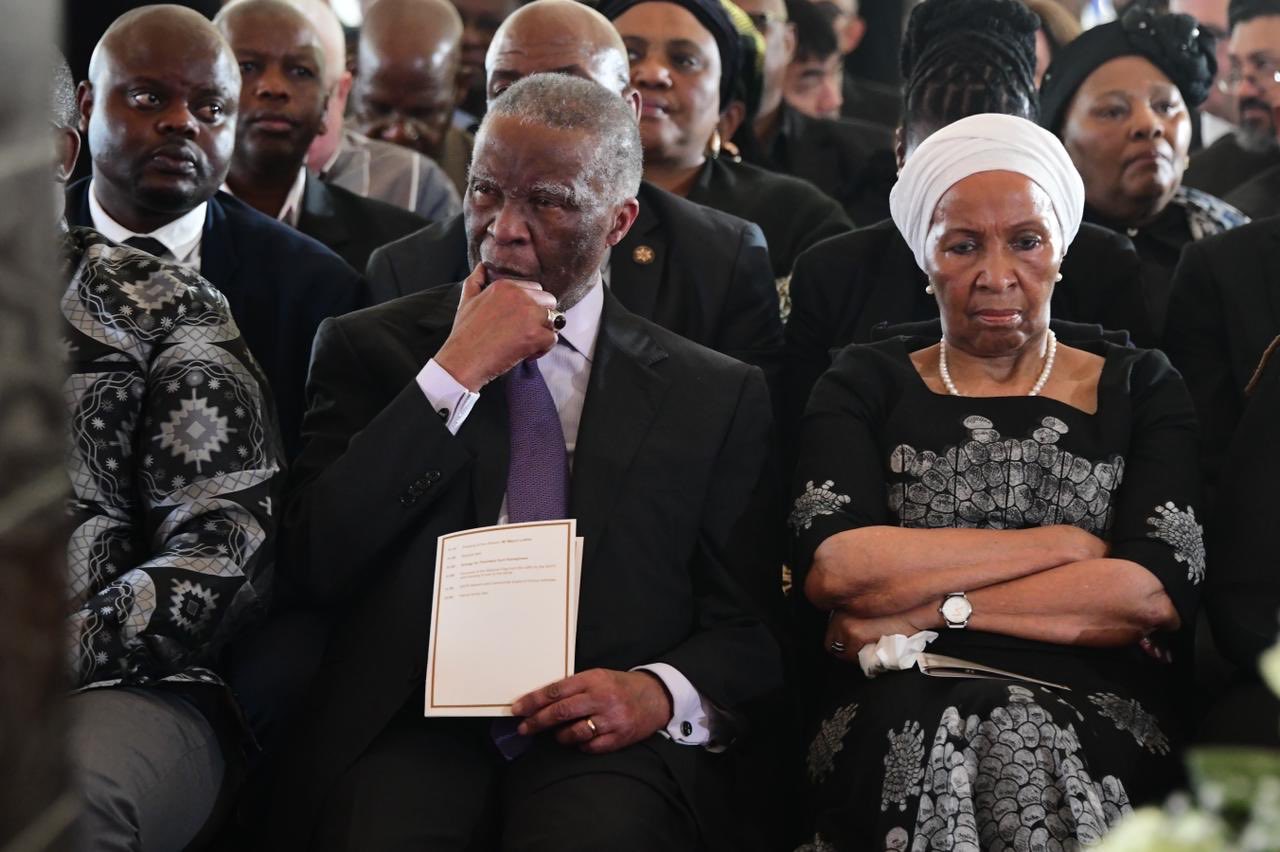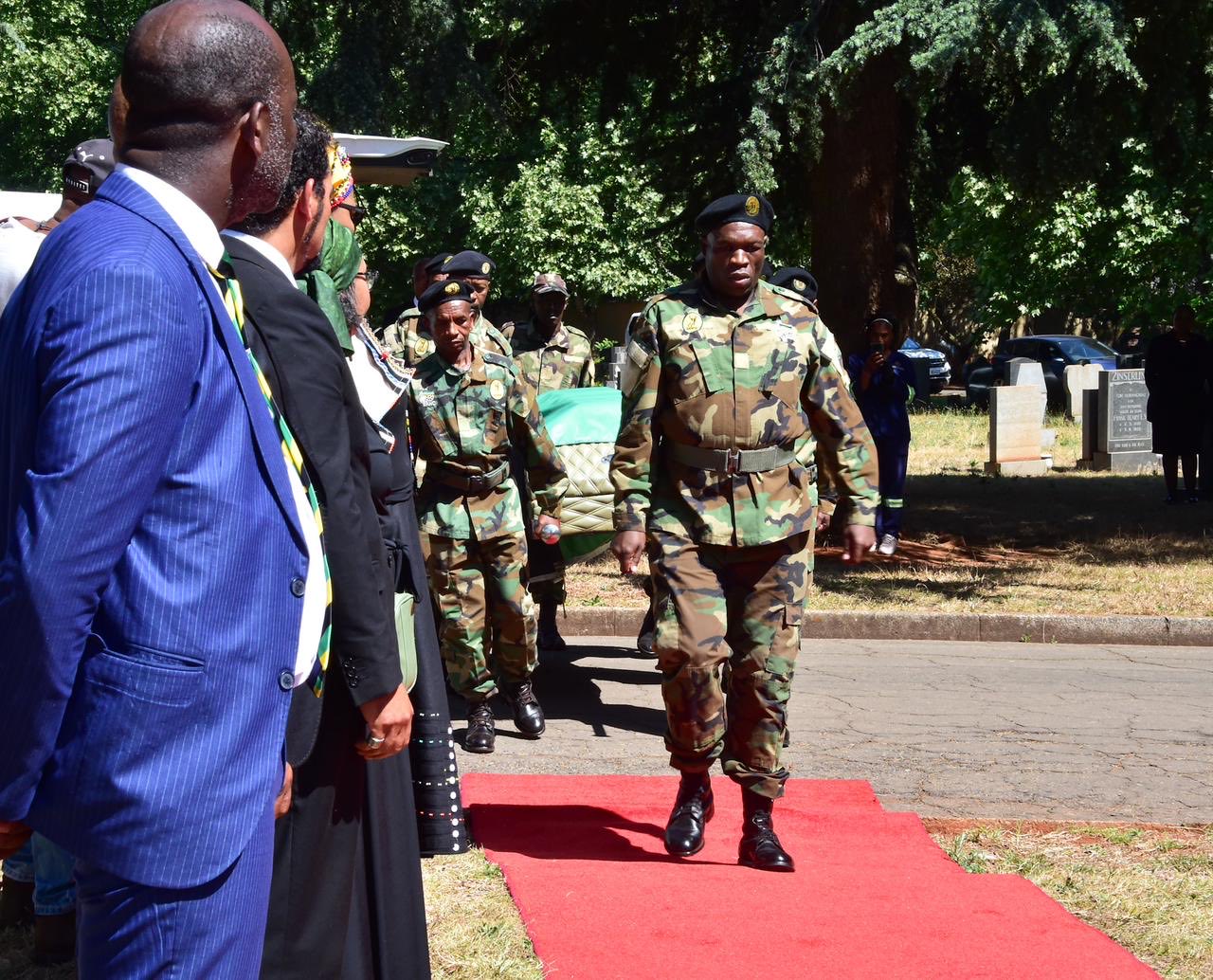Sun 01 October 2023:
Aziz Goolam Pahad, who has died at the age of 82, was a South African anti-apartheid activist, politician and deputy minister of foreign affairs in the post-1994 government.
Together with a small group of foreign policy analysts, I worked with Aziz over the span of 30 years, shaping the post-apartheid South African government’s approach to international relations and its foreign policy. We spent countless hours debating foreign affairs and the numerous crises and challenges government had to face as a relative “newcomer” in continental African and global affairs.
Aziz was generous with giving his time to formulate positions that would allow for the unlocking of a crisis. He remained open to intellectual challenges throughout his career. He was a keen participant in academic research projects dealing with foreign policy.
He made a monumental contribution to the struggle against apartheid and colonial oppression in South Africa, the continent and the Middle East. And he contributed significantly to the development and execution of a progressive African-centred foreign policy doctrine. Sadly, towards the end of his career as a diplomat he witnessed the slow decline of South Africa’s stature and influence in global affairs.
The Mandela and Mbeki years
Under presidents Nelson Mandela (1994-1999) and Thabo Mbeki (1999-2008), South African diplomats who’d sharpened their skills during many years of exile became sought-after as facilitators and mediators. Under their guidance Africa converted the Organisation of African Unity into the African Union, and reset relations with the international community via the New Partnership for Africa’s Development.
South African diplomats were articulate and visible in the corridors of the United Nations and in gatherings such as the Group of 7, Group of 20 and the Non-Aligned Movement. They were able to advance Africa’s quest for peace and development. In Africa, political and security crises, particularly in the Democratic Republic of Congo, Sudan and Burundi, were given attention.
However this “golden era” of South Africa’s foreign policy, as fellow scholar Chris Landsberg calls it, was unable to withstand the corroding effects of foreign meddling in African affairs. Neither could it withstand the grand corruption which reached its apogee in South Africa under former president Jacob Zuma (May 2009 – February 2018).
Preparatory years
Aziz was born on 25 December 1940 in the former Transvaal, the current North West province in South Africa. His parents were Amina and Goolam Pahad, activists in the Transvaal Indian Congress, a political organisation established in the early 1900s by Mahatma Gandhi and others. The congress became involved in the broader anti-apartheid struggle in later years. His elder brother, Essop, also became an activist. Essop passed away in July.
In 1963, Aziz completed a degree in sociology and Afrikaans at the University of the Witwatersrand in Johannesburg. As an activist, he was served with a banning order and arrested on several occasions. After the Rivonia Trial from 1963 to 1964, in which ten leaders of the African National Congress (ANC) were tried for sabotage designed to overthrow the apartheid system of racial oppression, he and Essop left South Africa and went into exile.
Aziz spent some time in Angola and Zimbabwe but lived mostly in London. He completed a master’s degree in politics and international relations at the University of Sussex. He worked full-time for the exiled ANC and supported the development of the Anti-Apartheid Movement.
Even before his return to South Africa in 1990, he contributed to the transition from apartheid to democracy, a role well described in his book Insurgent Diplomat: Civil Talks or Civil War?.
Aziz worked closely with Thabo Mbeki, at the time head of the exiled ANC’s international relations department, and a small team of academics in formulating the ANC’s position on foreign policy. The paper formed part of preparations by the ANC and its alliance partners, the South African Communist Party and the Congress of South African Trade Unions, for governing the country.
The foreign policy paper provided a broad roadmap for diplomats post-apartheid. It eventually shaped government’s more formal foreign policy of 2011, entitled Building a Better World: The Diplomacy of Ubuntu. In the mid-1990s, Aziz was instrumental in the establishment, with support from the German government, of an ANC-aligned think-tank called the Foundation of Global Dialogue, run by foreign policy expert and academic Garth le Pere and myself. It lives on as the Institute of Global Dialogue, based at the University of South Africa.
Role in government
Following the victory of the ANC in South Africa’s first democratic election in 1994, Aziz was elected to parliament. From there, he was appointed by President Mandela as deputy minister of foreign affairs. He was re-elected to parliament in 1999 and 2004, and kept his position as deputy minister of foreign affairs throughout the Mandela and Mbeki presidencies.
Holding the post for 14 years meant that he was able to create and nurture a wide network of political, academic and diplomatic connections. This enabled him to play an unassuming but key mediating and facilitation role dealing with major crises on the continent and beyond.
But Aziz also showed his activist roots when he spoke out against the American-led invasion of Iraq in 2003 and the Nato-led invasion of Libya and assassination of Muammar Gaddafi in 2011. He supported the Palestinian struggle for recognition over many decades.
Aziz resigned from government and parliament in 2008, shortly after Mbeki was removed as president of the ANC in 2007.
The ‘diplomat-scholar’
In retirement, Aziz remained active as a “diplomat-scholar”. He played a prominent role, with his brother Essop, in a small but influential think-tank, the Concerned Africans Forum. In 2015 he headed the short-lived South African Council on International Relations.
The council was established by the government as a body of experts and a sounding board for senior decision-makers. However, its semi-autonomous identity brought it into conflict with the ruling party’s foreign affairs structures. Politicians allowed it to wither away.
In 2018 the administration of President Cyril Ramaphosa asked Aziz to lead a commission of experts to review South Africa’s international relations. In a sad repeat of the council’s demise, the commission was never given a proper hearing and its value remains untapped.
Author:
![]()
Anthoni van Nieuwkerk
Professor of International and Diplomacy Studies, Thabo Mbeki African School of Public and International Affairs, University of South Africa
Anthoni van Nieuwkerk is a professor of International and Diplomacy Studies at the Thabo Mbeki African School of Public and International Affairs. Before joining the Unisa, Anthoni taught public policy and international relations at the Wits School of Governance. He is a rated NRF scholar and publishes mostly on African security themes. He is experienced with scenarios methodology and advises African governments and multilateral institutions on policy matters relating to governance, peace, and security.
______________________________________________________________
FOLLOW INDEPENDENT PRESS:
TWITTER (CLICK HERE)
https://twitter.com/IpIndependent
FACEBOOK (CLICK HERE)
https://web.facebook.com/ipindependent
Think your friends would be interested? Share this story!



